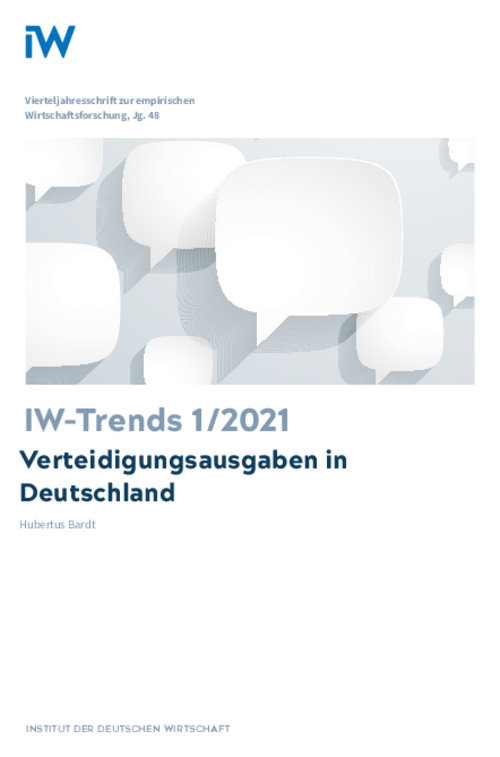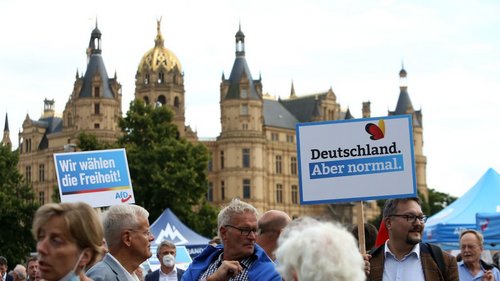With the overall risk of military conflict and the concomitant threats to political and economic sovereignty showing no sign of letting up, Germany’s armed forces need to be correspondingly manned and equipped. Defence is a key public good that can equally be justified economically.

Defense Spending in Germany: High Peace Dividend and Missed NATO Quota
IW-Trends

With the overall risk of military conflict and the concomitant threats to political and economic sovereignty showing no sign of letting up, Germany’s armed forces need to be correspondingly manned and equipped. Defence is a key public good that can equally be justified economically.
The conflict potential presented by authoritarian governments in and near Europe poses new challenges to which German security policy must respond with appropriate budgets. So far, new demands on the armed forces in an international context have not led to a noticeable increase in German defence spending, which has, on the contrary, fallen significantly since the end of the Cold War. Since the Iron Curtain fell, Germany has achieved much higher and more lasting savings than either France or the United Kingdom and has thus enjoyed by far the greatest peace dividend. Moreover, in the next few years, Germany is likely to continue to miss the NATO target for defence expenditure of 2 per cent of gross domestic product by a wide margin. If it were to be met, Germany’s defence budget for the period between 2021 and 2024 would have to be boosted by an overall 86 billion euros.

Hubertus Bardt: Verteidigungsausgaben in Deutschland – Hohe Friedensdividende und niedrige NATO-Quote
IW-Trends

More on the topic

Tailoring the Truth: evidence on parliamentarians’ responsiveness and misinformation toleration from a field experiment
The rise of populist radical right parties (PRRPs) is largely seen to have been triggered by a dealignment between voters and political elites and to have triggered an increasing supply of misinformation.
IW
Works Council Elections 2022: Results of the IW Works Council Election Survey
Works councils receive strong backing from the workforces they represent. Nevertheless, the drop in turnout reported in the IW Works Council Election Survey 2022 suggests that this support is declining.
IW